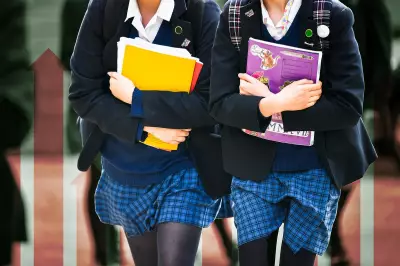
The Scottish National Party government has ignited a political firestorm with its controversial new transgender guidance for schools, a sprawling 64-page document that critics argue prioritises ideology over child safety.
At the heart of the controversy is guidance suggesting that boys who identify as female should be permitted to use girls' toilets and changing facilities without challenge. The policy states that questioning a child's gender identity could cause "significant emotional distress," effectively creating a "no-questions-asked" approach to facility access.
Parental Outrage and Safety Concerns
Parents' groups and women's rights campaigners have expressed profound alarm at the implications. Many fear the guidance could compromise the privacy and safety of female students, creating environments where biological males have unrestricted access to female-only spaces.
One concerned parent told reporters: "We're being told that our daughters' right to privacy and safety comes second to gender ideology. This isn't inclusion - it's imposition."
The Political Battle Intensifies
The guidance represents the latest front in the SNP's progressive policy agenda, but it's facing significant pushback from across the political spectrum. Even within the Scottish government, there are reported concerns about the practical implementation and potential legal challenges.
Critics argue the document reflects a broader pattern of the SNP prioritising symbolic progressive policies over practical governance. As one political commentator noted: "This is becoming a hallmark of the SNP administration - ambitious social engineering that often overlooks real-world consequences."
What the Guidance Actually Says
The comprehensive document outlines numerous scenarios where schools should affirm a child's gender identity without parental consultation if the child requests confidentiality. Key provisions include:
- Permission for students to use facilities matching their gender identity
- Advice against questioning a child's self-declared gender
- Guidance on changing names and pronouns without parental knowledge
- Protocols for overnight school trips involving transgender students
Education authorities now face the challenging task of implementing these guidelines while balancing the rights and concerns of all students and parents.
A Nation Divided
The debate reflects wider societal divisions over transgender rights and women's rights in the UK. Similar policies have sparked controversies in England and Wales, but the Scottish approach appears particularly uncompromising to critics.
As schools prepare to implement the guidance this academic year, many are bracing for further confrontations between policy makers, parents, and campaign groups concerned about the implications for child protection and women's rights.





